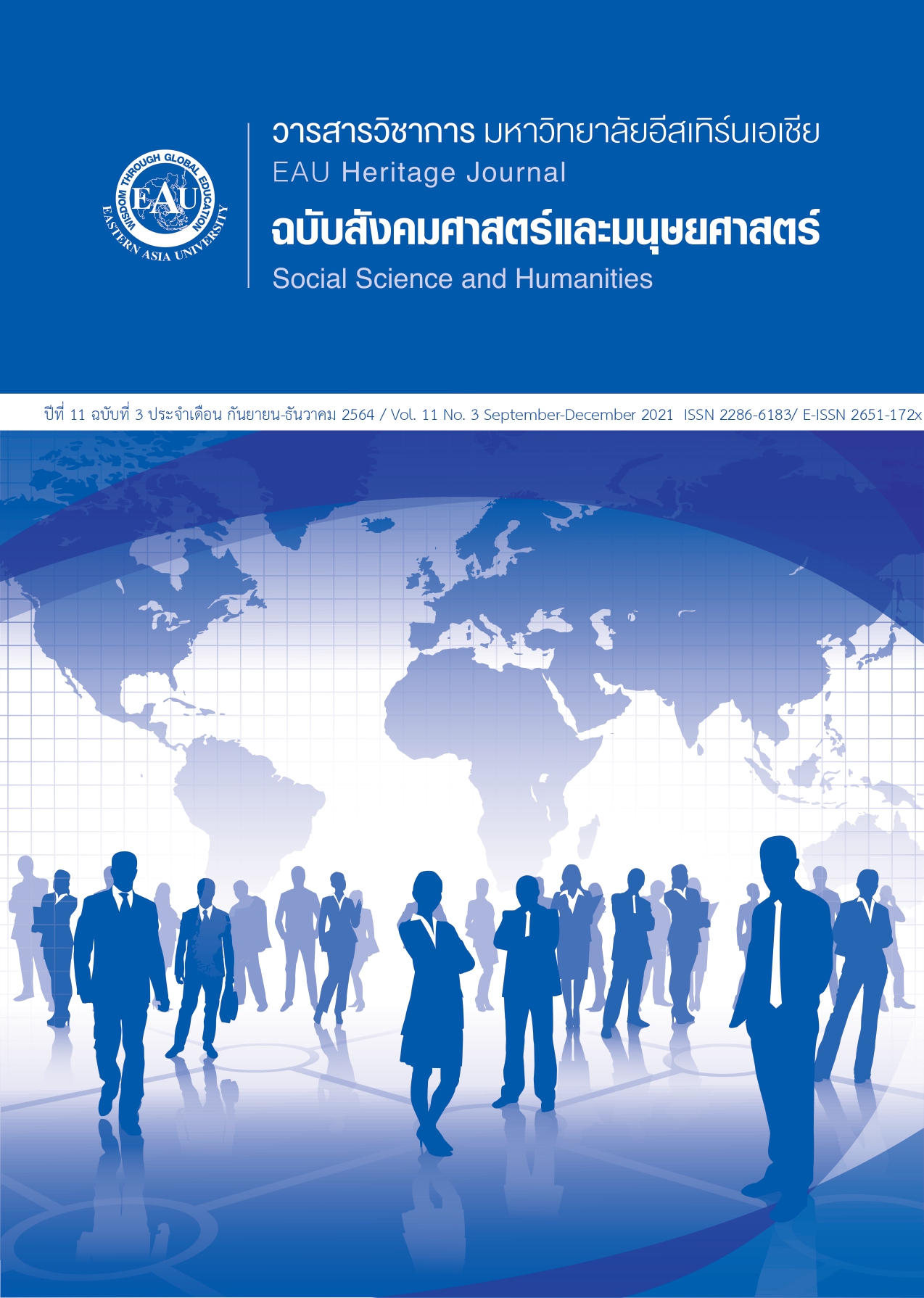Intercultural Communicative Competence of Thai Hotel Workers in Samui Island Through the Eyes of HR Professionals
Keywords:
Intercultural Communicative Competence, human resources development, globalizationAbstract
This study aimed to explore the perspectives of human resources professionals on the nature of intercultural communicative competence and its application within the Thailand hotel industry through qualitative interviews. As human resources professionals are considered to be one of the direct practitioners in the industry, their insights and perspectives on the intercultural communicative competence of hotel workers were valuable for the current study. The subjects included eight human resources professionals purposively selected from upscale hotels in Samui island. Two research questions were posed: “What constitutes intercultural communicative competence according to human resources professionals?,” and “To what extent do Thai hotel workers currently possess intercultural communicative competence according to human resources professionals?” Results revealed that the components of intercultural communicative competence from a human resources perspective were grouped under five core categories including attitude, cultural empathy, experience, interaction involvement, and personal attributes. In regard to the extent of intercultural communicative competence of Thai hotel workers who worked in the line level and management level positions, the majority of interviewees described their level of intercultural communicative competence as being ‘relatively good’ and ‘better than relatively good,’ respectively. Other relevant headings in the Thailand hotel industry from a human resources perspective were also discussed.
References
2. Arasaratnam, L. A. (2006). Further testing of a new model of intercultural communication competence. Communicative Research Reports, 23(2), 93-100.
3. Arasaratnam, L. A., & Doerfel, M. L. (2005). Intercultural communication competence: Identifying key components from multicultural perspectives. International Journal of Intercultural Relations, 29, 137-163.
4. Auerbach, C. F., & Silverstein, L. B. (2003). Qualitative Data: An Introduction to Coding and Analysis. New York, NY: New York University Press.
5. Baum, T. (2002). Ranking workplace competencies: student and graduate perceptions. Asia-Pacific Journal of Cooperative Education, 3(2), 8-18.
6. Blanton, D. (1981). Tourism training in developing countries: The social and cultural dimension. Annals of Tourism Research, 8(1), 116-133.
7. Blue, G. M., & Harun, M. (2003). Hospitality language as a professional skill. English for Specific Purposes, 22, 73-91.
8. Chaisawat, M. (2005). Travel and tourism education in Thailand. Journal of Teaching in Travel & Tourism, 5(3), 197-224.
9. Christou, E. (2000). Management competencies for graduate trainees of hospitality and tourism programs. Annals of Tourism Research, 27(4), 1058-1061.
10. Cohen, E., & Cooper, R. L. (1986). Language and tourism. Annals of Tourism Research, 13(4), 533-563.
11. Creswell, J. W., & Miller, D. L. (2000). Determining validity in qualitative inquiry. Theory Into Practice, 39(3), 124-130.
12. Kay, C., & Moncarz, E. (2004). Knowledge, skills, and abilities for lodging management success. Cornell Hotel and Restaurant Quarterly, 45, 285-298.
13. Kiatkiri, S. (2014). Examining intercultural communicative competence in the Thailand hospitality industry: A study of Thai hotel workers from a human resources perspective (Unpublished doctoral dissertation). Texas Tech University, USA.
14. Kriegl, U. (2000). International hospitality management identifying important skills and effective training. Cornell Hotel and Restaurant Administration Quarterly, 41(2), 64-71.
15. Lam, J., & Singh, N. (2018). Role of hostels in fostering intercultural competence among host communities. Tourism Analysis, 23(3), 377-389.
16. Lertwannawit, A., Serirat, S., & Pholpantin, S. (2009). Career competencies and career success of Thai employees in Tourism and Hospitality sector. International Business & Economies Research Journal, 8(11), 65-72.
17. Martin, A., & Davies, S. (2006). An evaluation of the language skills in Scottish hotels. Journal of Hospitality, Leisure, Sport and Tourism Education, 5(1), 4-15.
18. Parasuraman, A., Zeithaml, V. A., & Berry, L. L. (1988). SERVQUAL: A multiple-item scale for measuring consumer perceptions of service quality. Journal of Retailing, 64(1), 12-37.
19. Pimapunsri, P. (2008). Factors affecting learning organization culture and hotel managers’ leadership styles in Thailand. Educational Journal of Thailand, 2(1), 34-43.
20. Sharifi-Tehrani, M., Sanayei, A., Kazemi, A., & Abadi, H.R.D. (2019). Ethnocultural empathy among frontline hospitality and tourism employees. Tourism, Culture & Communication, 19, 17-29.
21. TAT. (2018). The Tourism Authority of Thailand (TAT) History. Retrieved August 10, 2018, from https://web.archive.org/web/20150414011618/http://www.tatnews.org/history/





